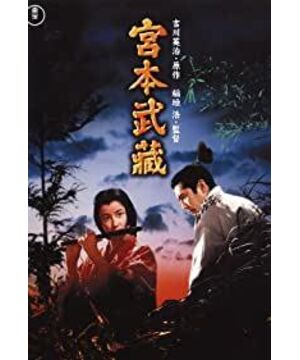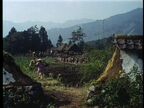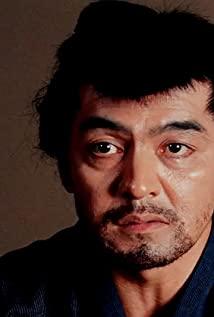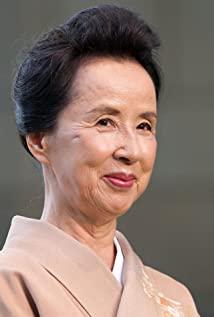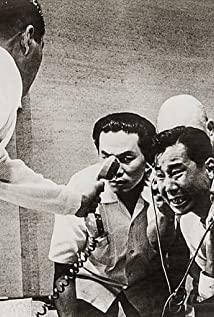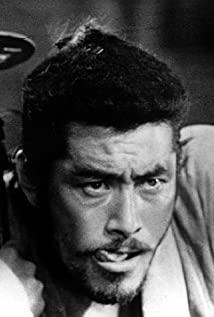a period drama trilogy, written by Hiroshi Inashiro, featuring Japanese swordsman Miyamoto Musashi and related figures in the late Warring States period, using Toshiro Mifune, Kaoru Yachigusa, Koji Tsuruta, and Moriko Okada Wait for the top actors to add colors, and then sprinkle a layer of Japanese unique aesthetic consciousness (Linpai) and spiritual pursuit (Buddhism) as seasonings, and finally cook a rare delicacy with all colors and fragrances.
Judging from the selection of materials, Miyamoto Musashi is a representative of the spirit of Japan’s old Bushido, with three masters of swordsmanship, art of war, and strategy, and the "Five Wheels Book" written by Sun Tzu, "The Art of War" and "On War" are also called As "the world's three major military books." It can be seen that his man is not only extraordinary in martial arts and swordsmanship, but also mature and sophisticated in strategic mentality.
Miyamoto Musashi was in a period when the Japanese national spirit gradually took shape. As an iconic figure of this period, Miyamoto Musashi's influence on Japan's national spirit and cultural history cannot be overstated. Inheriting the spirit and writings of Miyamoto Musashi, Yamaga Suyuki founded Bushido to oppose Zhu Zixue and advocate ancient studies. This process is the first clear expression of Japan's national spirit, and it also marks that Japan has become an independent individual rather than a Chinese student. In "Facts about China and North Korea," Yamaga Suyuki elaborated on the Japanese-centered view of the world and made the assertion that there is no China after Yashan (of course, in the eyes of Yamaga, Zhu Xi is no longer orthodox). This kind of thinking was carried forward by Yoshida Shoin and became the main trend of thought that influenced the Meiji Restoration and modern Japanese history.
Since Miyamoto Musashi, the defeats of the Ming Dynasty, Qing Dynasty, and the Republic of China have been closely related to Japan, which is indeed thought-provoking. On the one hand, it shows what kind of disaster the Mongolian conquest has brought to Chinese civilization. On the other hand, it also reminds China to be vigilant about the future of Japan. In any case, a deep understanding of Japan's unique national spirit is necessary, and this is to a large extent an understanding of Japanese Bushido and aesthetic culture, the so-called chrysanthemum and sword.
As far as Miyamoto Musashi's related films are concerned, Hiroshi Inagaki filmed some during World War II, and won the Oscar for Best Foreign Language Film for his trilogy of "Miyamoto Musashi" remade in the 1950s. It can be seen that even in the twentieth century, Miyamoto Musashi and the spirit of Bushido represented by him still had a far-reaching influence in Japan, both during and after the war. At this level, "Miyamoto Musashi" really belongs to Japan.
However, setting aside historical, political, and cultural considerations, Miyamoto Musashi's lifelong practice and the ups and downs of related figures also reveal to a certain extent the inevitable course of life and the joys and sorrows in it. This article mainly analyzes the character development of "Miyamoto Musashi" and summarizes the experience and lessons of personal achievements and destruction. There are only two types of men's pursuits in
Ninomiyamoto Musashi's practice and Sasaki Kojiro's destruction
drama: kendo and love. In the play, there are only two men who have gone through the complete cutscenes: Miyamoto Musashi (played by Toshiro Mifune) and Kojiro Sasaki (played by Koji Tsuruta).
From the initial setup, Miyamoto Musashi and Sasaki Kojiro's swordsmanship are both superb. In particular, the latter has completed his practice in the Nakajo Dojo, equipped with the Taidachi "Changguang", and has created the "Swallow Back" sword technique, and he is a famous fan when he enters the stage. In love, Miyamoto Musashi has always been an elm bump, and Sasaki Kojiro is indeed a master. Judging from the result, Miyamoto Musashi became a swordsman, a hard duel, and a beautiful woman, Sasaki was defeated by a wooden sword, fell into the wilderness, and desolate after his death. This gap can be said to be the gap between the winner and the loser, but at a deeper level, it is the inevitable result of the two life paths.
Miyamoto Musashi's life is a life of continuous practice, and it is also a process of restoring the mind (part 1), refining the mind (part 2), and refining the mind (part 3) (refer to the thinking of "Journey to the West").
In the first part, Miyamoto Musashi participated in the war with the mentality of seeking fame and fortune and showing off in front of the whole village. Fortunately, I met the monk Ze'an's teaching, which clarified the higher pursuit and increased his wisdom through reading. After both civil and military, Miyamoto Musashi escaped from the chaotic state of only knowing killing, and began to transform into a samurai. This is marked by his being given the name "Miyamoto Musashi" (previously called Taijia), and started the second part of the mind-collection with his practice on the road. At the same time, Miyamoto has already expressed his friendship with Atong, but left her alone. This is indeed a requirement of the samurai trial and a manifestation of rational control of desire.
In the second part, Miyamoto wins a duel, but is broken by the monk Nikan (?) or lacks courage (frightened by a ghost mask), and is not a real samurai (Bushido's request is actually to see through life and death, a loyal lord) . The force is very strong, and the spirit is not calm, so he has not yet cultivated home. Because one cannot maintain a strong body forever, Musashi's problem is that he is too strong. Strong is easy to break. To survive, what Musashi needs is the tempering of his character. Throughout the second part, Musashi slowly realized this and began to train his mind slowly. In the process of challenging the Yoshioka Kaikan in Kyoto, Musashi came into contact with swordsmiths Honami Koetsu and Haiyu Yoshino, and realized that the so-called training of the mind is actually the cultivation of spiritual control. According to Plato, the slave is a person whose desire controls the rationality, and the refinement of the mind is the process of becoming a spiritual nobleman. When it comes to Bushido, this kind of spiritual control must be complemented by courage. At the end of the second part, Musashi knew that the Okamoto Dojo had set a trap and still resolutely went to the appointment, but in terms of fighting, he was very flexible and led the enemy into the paddy field to successfully escape. The setting of this kind of plot is exactly the first fruitful performance of the training of the mind.
In the third part, Musashi's training has been accomplished. Facing the monk’s challenge, he not only didn’t feel angry, but he was able to ask the monk to forgive his partner. Facing the provocation of the mobster in the hotel, he used his chopsticks to intimidate the insects without hurries; when the final battle was approaching, he was able to take time Come out to do the work of engraving Buddha statues; decided to postpone the decisive battle and go to the countryside to plant land to enhance the understanding of life. . . These are all manifestations of great training. Sasaki Kojiro's challenge is an important thing for him, but it can no longer disturb his life. This ability to stay in danger and continuously improve his abilities is the main factor for Miyamoto Musashi's continuous breakthrough to become a swordsman; defeating Sasaki Kojiro is naturally a matter of course.
The process of Miyamoto Musashi's kendo practice shows that if you need to train your mind beforehand, you will be able to improve in essence. This kind of essential improvement does not necessarily require something earth-shattering, but needs to be carried out in a continuous life. Life should not be disturbed by major events, nor should you relax your vigilance on trivial matters, you will eventually achieve essential success (kendo).
On the other hand, Sasaki Kojiro wanted to defeat Okamoto since his appearance, and after his death, Okamoto wanted to defeat Musashi. This is a character who thought he was number one in the world from the moment he appeared on the stage, and never thought that he still needs to continue to practice. As soon as the third part opened, Kojiro sighed to the sword, "Your poor master, you have a martial arts, but you are not famous. My poor Changguang!" At the time of the competition, he did not think that he had done something wrong. , After killing the general teacher's doorman, he didn't think he needed it. Even before the duel with Musashi, he didn't want a woman to pray for himself. This is a kind of confidence that is close to paranoia, and it is also a kind of confidence that leads him to destruction.
It can be seen that Musashi is a complete victory over Kojiro in Kendo. On the other hand, when it comes to love, Musashi has never started. In the second part, Miyamoto's evaluation of Yoshino Dance is that there are no weaknesses that can be attacked, which shows that it will not live with women at all. When the second part approached the end, when Musashi wanted to merge with Atong, he was rejected by Atong, and he ran away in a panic. This shows that Musashi is still inexperienced in love. Not only did he fail to make good deeds, but he thought he had hurt Atong (this was explained again when the two reunited in the third part). Until the final duel, Atong came with illness, Musashi explained his feelings for Atong in order to defend the air before the duel, hoping that after the duel failed, Atong could collect his body as his wife. After the victory of the duel, the two people are of course likely to be together, but in this relationship, Ah Tong may only gain a strong, straightforward, courageous and self-controlling man. It is difficult to say when this man will become her lover and communicate with her emotionally. There is only one kind
of persistence of San Atong and
the pursuit of women in Zhu Hua's destruction drama: love. In the play, there are only two men who have walked through the complete cutscenes: Atong (played by Yachikusa Kaoru) and Zhu Hua (played by Okada Moliko).
Judging from the initial conditions, Atong is the fiancée of a friend of Musashi, who only knows how to wait foolishly, while Zhu Hua is in the robber's den and has a long time understanding of men and women. Atong's sympathy to Musashi is from sympathy to love, and finally he cultivates true fruit; Zhu Hua is a mixture of carnal to love and hate to Musashi, and ultimately to destruction.
It is undeniable that Musashi has great appeal in the eyes of women with his strong body and straightforward personality. Facing this attraction, Ah Tong chose to wait passively, while Zhu Hua chose to try actively. Both are rivals in love, but they also know what it means to fall in love with someone like Musashi. The difference is that Atong can calm down and wait, and speak his own thoughts when the opportunity comes (even if it doesn't help), and he won't force Musashi to do anything. However, Zhu Hua went with the crowd, exhausted his organs, and even hoped to have a duel between men like Ah Tong. When she picked up the knife, Zhu Hua had already mistaken the way to solve problems on the battlefield of love.
Fourth, men and women have different practice modes.
Men need to practice kendo, while women need to practice love.
Just as a strong man is easy to break, a woman too scheming will not have good results. Both need to strengthen the tempering of the xinxing, that is, the control of the mental power. For women, it is actually the control of emotions, in fact, it is reserved, passive and waiting. In this passivity and waiting, there is the most profound thing, just like what men pursue in kendo. In other words, the initiative of men in their feelings is rather shallow. This may be why they want to put their careers ahead!
View more about Samurai I: Musashi Miyamoto reviews


